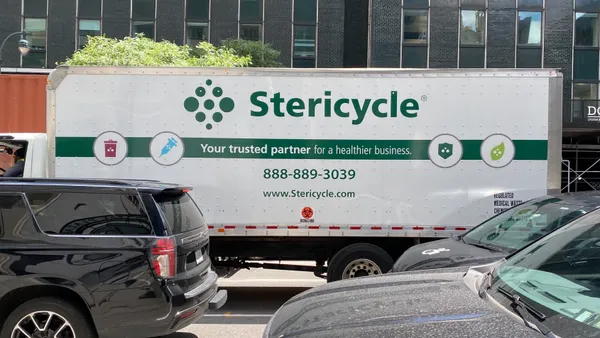Dive Brief:
- Miami-Dade County, Florida, has received verbal interest from at least three waste companies to ship MSW via rail, an official said at a Board of County Commissioners meeting Wednesday. WM, Waste Connections and American Waste Services all currently operate within the county.
- The interest comes as the county must address a disposal capacity shortfall over the next decade following the closure of its Covanta-run combustion facility last year due to a fire. The loss of the facility removed about one million tons of annual capacity for MSW.
- County Chief Operations Officer Jimmy Morales said WM and American Waste had sent written proposals. The former said through a spokesperson it began a pilot project in October to ship waste from its Miami Transfer Station to its Okeechobee Landfill; the latter is looking to ship waste by rail to Georgia, Morales said.
Dive Insight:
County board members are working to identify both medium- and long-term solutions for waste disposal, including the eventual construction of a new waste-to-energy facility. Shipping waste via rail has gained increasing attention from capacity-strapped regions in the U.S., spurring investment from companies like Waste Connections to meet the demand.
The officials took no action on disposal despite a plan to discuss solid waste issues at their regular January meeting because County Mayor Daniella Levine Cava’s most recent update to the board did not provide actionable information on existing disposal contracts, potential WTE sites or collection and disposal options.
“There is a sense of urgency,” Commissioner Raquel Regalado said during the meeting Wednesday. “There's so many pieces of this that we have to resolve, but it's not going to get any easier.”
The county estimates that it has about 12 years of total remaining capacity, or 3.3 million permitted tons, including at its current public and private landfills. That timeline is likely to put cost pressures on the county and private haulers alike — up to $150 million in additional hauling costs and “an unknown amount for landfill closure, remediation and tipping fee fluctuations,” according to a report sent from the mayor to the county board on Jan. 16.
Morales said the county’s interest in waste-to-rail has garnered interest from waste companies operating in the area, but officials would work to ensure any such agreement would be cost effective.The county’s funding mechanism doesn’t fully cover the cost of collections and disposal, and a county official said under current conditions they would have to raise the ad-valorem fee assessed to residents in order to cover rising costs.
The report also highlighted the challenges with identifying funding mechanisms for the new WTE plant, saying “many factors are still in flux.” County officials are awaiting preliminary air quality reports on three candidate sites to determine the impact a new facility would have, which Morales said should come in the next few months.
Infrastructure consultant AtkinsRealis, which entered into a $65 million contract with the county to bring design for a WTE site to 30% completion, has also begun its work, Morales said.
The mayor’s office provided background on three potential funding sources for the WTE facility in its report. Tax credits from the Inflation Reduction Act could cover between 30% and 40% of project costs. The Florida legislature also approved a plan to set aside millions for WTE projects, which Cava’s office said Miami-Dade could “significantly benefit from.” The county could also explore a public-private partnership in which a private business could profit from electricity produced and sold from the facility.











